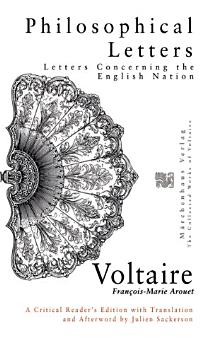Philosophical Letters
About this ebook
This modern Critical Reader’s Edition includes an illuminating afterword tracing Voltaire’s intellectual relationships with Enlightenment thinkers and philosophers (including Locke, Diderot, Rousseau and Newton), containing unique research into his influences and economic attachments, a comprehensive timeline of his life and works, a glossary of Enlightenment terminology, and a detailed index of all of Voltaire’s writings. This unique professional translation renders Voltaire’s sharp, satirical prose into modern language to preserve the original clarity and movement of the text. Combined with the scholarly amplifying material, this edition is a groundbreaking exploration of Voltaire’s classic works and his enduring artistic and philosophical influence.
This collection was first published anonymously in London in 1733 (in English translation by chapbook printer Lockman) and then issued in French translation in 1734. Its release caused an immediate uproar in France. The letters were seen as a thinly veiled attack on the French political and religious system, and they were rapidly suppressed. Voltaire himself was threatened with prosecution by the French authorities, forcing him to flee Paris and live in exile at times for his safety. Thus the Lettres philosophiques debuted at a time of intense governmental censorship. In spite of that, they were widely read clandestinely and discussed in intellectual circles. The controversial nature of the publication underscores its context: it appeared at the height of ancien régime absolutism, so Voltaire’s open admiration for English liberties and criticism of fanaticism directly challenged the status quo. The work was quite unlike what the censors expected from Voltaire’s oeuvre; rather than avoid politics, he embraced the occasion of an expatriate’s perspective to provoke debate.











